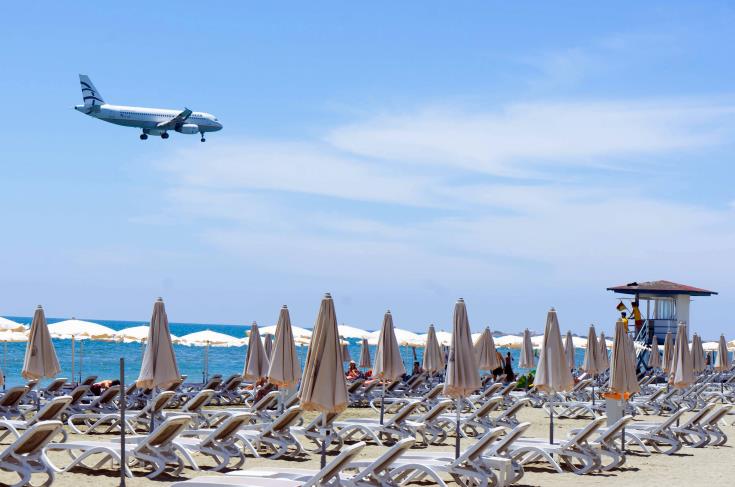Europe going into lockdown has delivered the final blow of any hopes that Cyprus tourism shareholders can keep tourist arrivals alive during the last months of the year.
The latest development – as Greece, Germany, the UK, France go into mini-lockdowns – puts further pressure on tour operators who will have to deal with requests for refunds.
Local tour operators have not yet calculated the amount they will have to return to people who have booked a holiday on the island or a trip abroad, cancelled due to COVID-19 restrictions and changes in quarantine laws.
In comments to the Financial Mirror, the chairman of the Association of Cyprus Travel Agents, Vassilis Stamataris, said that tour operators are left to carry the weight of refunding clients alone, as the relative legislation leaves out hotels and airlines.
“According to legislation in place across the EU, tour operators are the ones legally responsible for refunding a holiday package.
“As tour operators we are trying to buy time by either rescheduling the holiday packages or refunding many packages,” said Stamataris.
He said last week’s decision to take Cyprus off the UK’s Travel Corridor list, increased pressure on tour operators in Britain, but also in Cyprus as they would have to deal with more cancellations which would see their income hit rock bottom.
This situation has been compounded by Britain going into national lockdown from Thursday for one month where non-essential travel is banned.
According to Sky news report, in the UK customers are waiting for more than £1 bln in refunds due to package holidays being cancelled because of coronavirus.
“Normally tour operators can handle cancellation refunds. However, the number of cancellations due to the coronavirus pandemic has left many of them overwhelmed,” said Stamataris.
He added that things become more complicated for tour operators as it takes them days just to find a potential customer, who is willing to travel, as each country applies a different set of regulations and quarantine laws.
“Even the EU has failed to adopt some sort of uniformity. To book a ticket for someone from or to Cyprus, we need to visit various websites to collect information on regulations applied in a given country, which may not be up to date or even change a few minutes after booking.
Things get more complicated if the trip involves a third country.”
Stamataris called on Cyprus authorities to step in and put pressure on EU institutions to adopt a uniform system for allowing entrance to travellers and to revise its own rules regarding quarantine.
ACTA’s chairman argued that Cyprus had the potential to attract a larger number of tourists than it did during the pandemic if there was uniformity in the EU.
He believes that quarantine for passengers travelling within the EU should be scrapped altogether and be replaced with the demand that every traveller carries a negative coronavirus test.
“We don’t see the logic behind having a category C, especially in the EU, while testing at the airports before travelling could have done away with the need for quarantine.
“A recent study in the EU showed that 50% of the union’s citizens were willing to travel but could not because of restrictions in place.”










